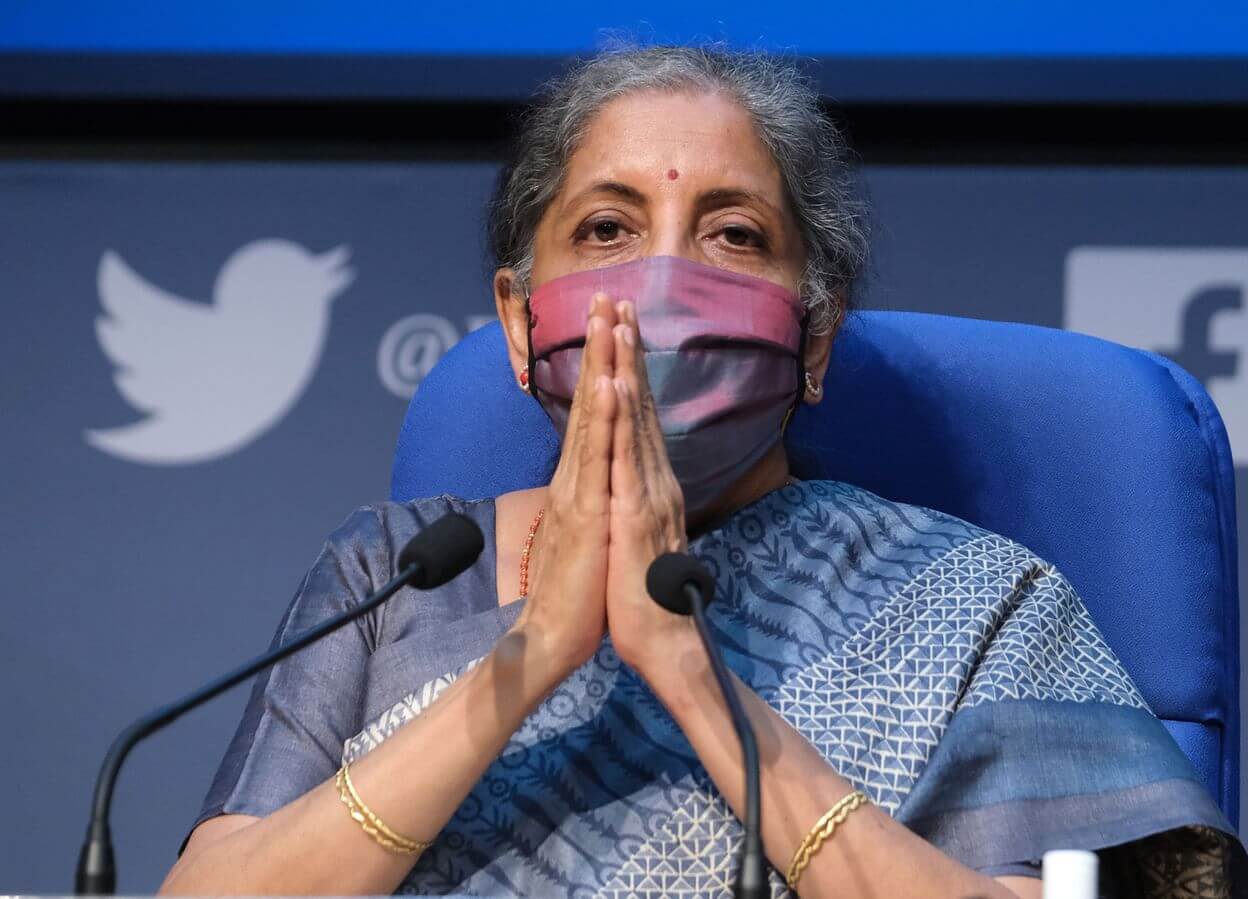On Monday, in an attempt to revive the pandemic-struck economy, India’s Finance Minister Nirmala Sitharaman announced stimulus package of Rs. 73,000 crores. This proposal includes “Rs. twenty-eight thousand crores on leave travel concession (LTC) vouchers and encashment by government employees, Rs. eight thousand crores on pre-paid special festival advances, Rs. twelve thousand crores capital investment by states via 50-year interest-free loans from the Centre, and Rs. twenty-five thousand crores additional capital spending on infrastructure projects by the Centre in 2020-21.”
The package is focused on increasing consumer spending through two components—LTC vouchers and special festive advances. LTC vouchers are offered to employees of the central government and allow them to travel to a destination of their choice every four years. However, with the ongoing COVID-19 pandemic making travel difficult, Sitharaman proposed a “one-time-only” offer for the employees to encash their LTC and motivated private employers to provide similar benefits to their employees. According to Sitaraman, in addition to the Rs. 37,000 crores boost created by capital expenditure and the Rs. 36,000 crores boost by consumer spending, adoption of the proposal by private sector entities would attract an additional Rs. 28,000 crores to the economy.
Further, the “special festive advance” provides for the central government to give employees Rs 10,000 per person as a loan, which can be repaid in ten instalments. However, this offer comes with certain conditions: the employee would have to spend the money by March 31, 2021, through digital payments made for non-essential goods and services that attract more than 12% GST. She encouraged the state governments to also adopt this approach but clarified that it was not mandatory.
Following the announcement, Indian Prime Minister Narendra Modi applauded Sitharaman’s package and predicted that it would be successful in boosting the Indian economy.
Today’s announcements by FM @nsitharaman Ji are timely moves which will boost consumer spending and sentiment as well as push capital expenditure. These steps will also boost demand in our economy. https://t.co/bqhJhz8iwo
— Narendra Modi (@narendramodi) October 12, 2020
However, the proposal was not received well by opposition parties. Gourav Vallabh, spokesperson for the Indian National Congress (INC), and Praveen Chakravarty, the INC’s technology and data cell head in a statement said that while the “belated realisation” of increasing consumer spending was welcomed, this package was likely to have the same fate as the “much-hyped Rs. 20 lakh crores Atmanirbhar plan,” which they believed to fail miserably in “reviving India’s ravaged economy.” “But evidently lessons from that experience have not been learnt yet. Just because the PM or the FM call these measures an economic stimulus does not mean the economy will obey and get stimulated. The economy cannot be dictated to or swayed by headlines.”
Meanwhile, later on Monday, Sitharaman addressed the Goods and Services Tax (GST) Council, which aimed to reconcile differences between the central and state governments. This was the second meeting of the council in seven days, and the third consecutive meeting wherein the state and central governments failed to reach a consensus.
The main sticking point is that of GST compensation owed to state governments by the union government. According to the GST (Compensation to the States) Act, which was enacted in 2017, if the state government’s annual revenue growth is less than 14%, the union government must step in and compensate the state. However, with the onset of the COVID-19 pandemic, most states were unable to meet this benchmark, and the central government is finding it increasingly challenging to meet the states’ compensation needs. Earlier in 2020, Sitharaman, while addressing the GST Council, called the COVID-19 pandemic an “act of God, an unforeseen factor” that had disabled the union from compensating the states. Consequently, she urged state governments to borrow directly from the market. Ten opposition-ruled states rejected the union government’s proposal, while 21 others have chosen to take up Sitharaman’s suggestion and borrow Rs. 1.10 lakh crores to make up for the owed compensation.

